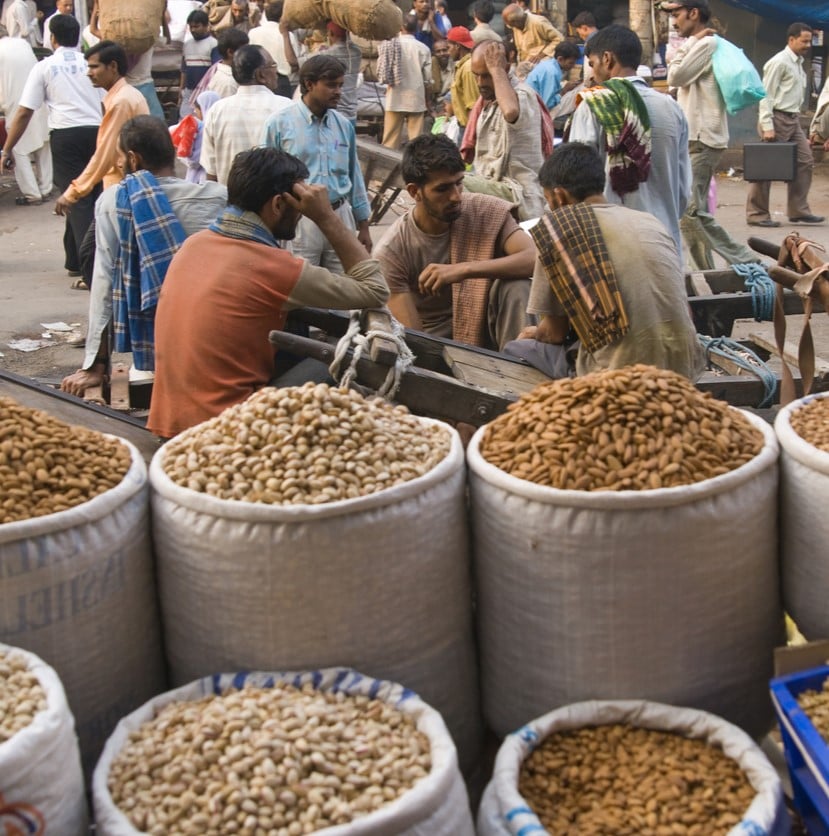Is India on the Verge of a Major Food Safety Shift?
In April 2023, government officials in India issued a startling report: Nearly a quarter of food samples tested by regulators during an investigation did not meet the nation’s food safety standards. The findings came amid a growing wave of consumer concern about the safety of their food, crackdowns on poor hygiene practices, foodborne illness outbreaks, and even rampant cases of food adulteration. But could India be on the precipice of a major cultural shift in food safety in spite of this disappointing news?
Why Food Safety Is So Challenging in India
Food safety culture is a relatively new concept in India, with the nations’ food safety regulation system only being established in 2006. Regulations are governed by the Food Safety and Standards Authority of India (FSSAI), established under the government's Food Safety and Standards Act passed the same year. The FSSAI is responsible for setting science-based food safety and quality standards, regulating how food and beverage products are manufactured, stored, and distributed, and ultimately enforcing compliance with these rules. Understandably, India faces many of the same problems that all developing food economies face, including:
- Low awareness of food safety needs. Until recently, many people in India have been unaware of food hygiene practices and the dangers of consuming contaminated food. Outside of urban epicenters, even citizens aware of contamination risks view safe food as a sort of luxury.
- Limited infrastructure. Food manufacturing and processing facilities can lack the resources to maintain proper hygiene, resulting in contamination and outbreaks of foodborne illnesses. In India alone, there are an estimated 100 million foodborne illnesses every year, resulting in an average of 120,000 deaths.
- Intentional food adulteration. A 2022 review by the FSSAI found a marked increase in the detection of food adulteration cases over the years, from just 15% in 2012 to 28% in 2019. Detection remains a problem as long as manufacturers skirt product registration requirements they are legally obligated to meet.
- Poor traceability, supplier controls, and hazard management capabilities. For many companies, tracing ingredients is impossible — especially raw agricultural commodities. Lack of standardized recordkeeping (as well as intentional food fraud) prevents manufacturers from tracking materials back to farms, or even primary processing centers. As a result, manufacturers are unable to assess potential risks of the materials they work with, undermining the safety of the entire food supply chain. Traceability is especially difficult for small- and medium-sized food businesses who have razor-thin profit margins and lack the resources to track ingredients without going into the red.
- Price sensitivity. Most of the food and beverage manufacturers in India are focused on reducing costs to make their product affordable to the public. As a result, many cannot prioritize food safety as a pillar of their business because it could prevent them from meeting their profit margins.
The Evolving Food Safety Landscape
In spite of these challenges, more recent cultural changes are improving food safety throughout the nation. What’s driving the shift?
- More modernization. India’s evolution into a modern and technologically advanced society has coincided with a rise in public interest in food safety and hygiene. For example, at the start of the pandemic, India’s emerging quick service restaurant (QSR) sector led a public awareness campaign about new food safety and hygiene procedures they were enacting to avoid viral contamination from their products and delivery. Social media has also driven greater awareness of food options and become a major channel to promote food safety and hygiene awareness.
- Capacity building. In tandem with awareness campaigns, the FSSAI has worked extensively to build regulatory and oversight infrastructure to continually improve food safety standards and compliance. In fact, FSSAI’s Eat Right India program was one of 10 initiatives awarded by the Rockefeller Foundation in 2021 for its visionary approach to tackling food safety challenges. The program has successfully trained and deployed more than 300,000 food safety supervisors to evaluate different establishments. Moving forward, the FSSAI plans to certify at least 50% of all known street food vendors and notify the public of their hygiene rating.
- Increased enforcement. In addition to education, the FSSAI has become increasingly strict about enforcing standards and holding noncompliant businesses accountable for their impact on public health. In fact, the increased testing and detection of food adulteration cases stems directly from the government’s more stringent investigation and enforcement policies. As food safety infrastructure continues to form and solidify, it will become more challenging for businesses to avoid compliance.
India’s food safety regulations and enforcement have come a long way in recent years, thanks to the combination of growing consumer demand and more enforcement capacity from regulators. While there are still many challenges ahead, especially in rural areas, India is on the verge of major improvements in terms of the nation’s food safety culture. Soon it will need to come into alignment with the global food safety standards recognized by the Global Food Safety Initiative (GFSI).
Food businesses in the region could benefit from third-party expertise to more effectively meet these standards. For over a century, AIB International has helped food and beverage organizations around the globe set higher food safety standards, improve operations, train staff, and more. Learn more about compliance and education for GFSI compliance here.


